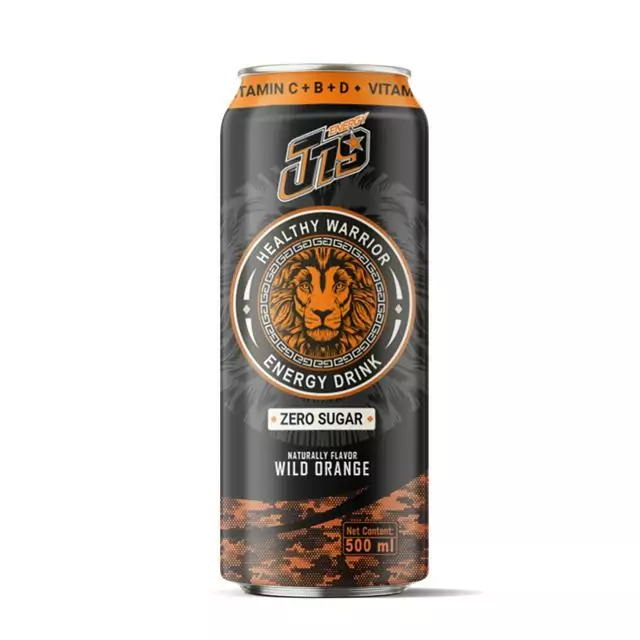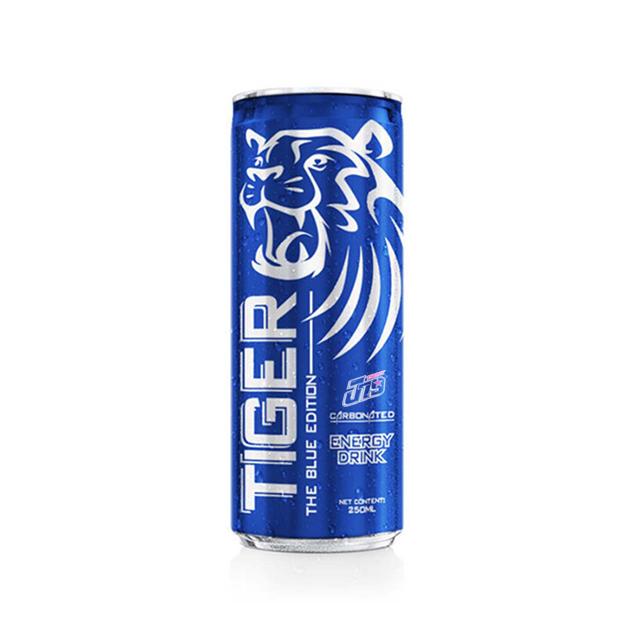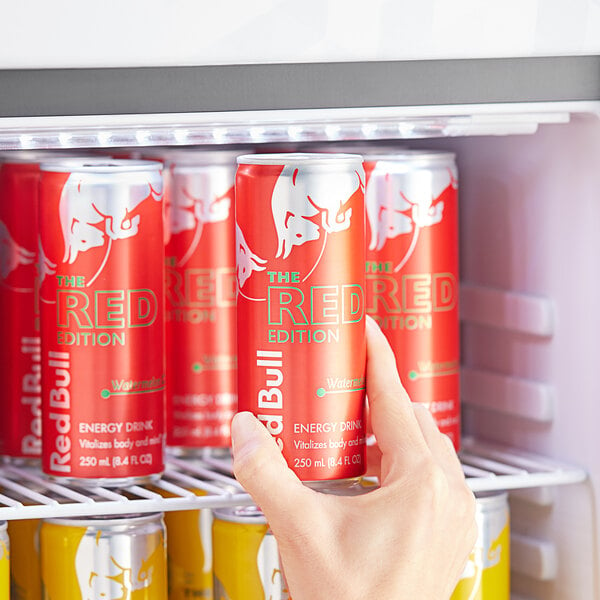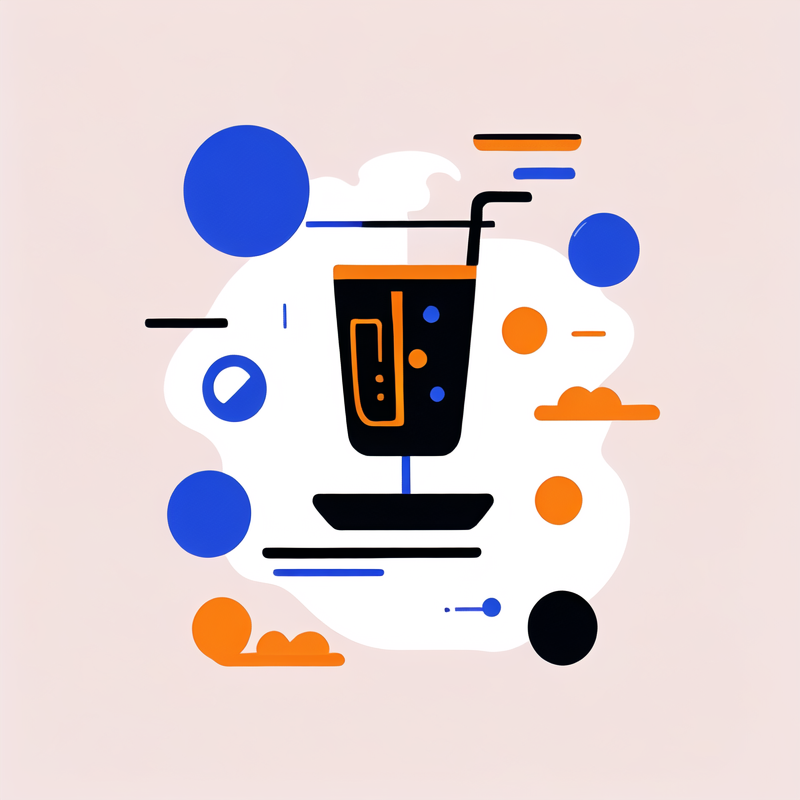The Science Behind Energy Drinks
Why do energy drinks make me tired instead of energized? Understanding why energy drinks can sometimes lead to fatigue, instead of the expected boost in energy, involves delving into the science behind these beverages.

Ingredients That Make You Buzz
Energy drinks pack a combination of ingredients known to stimulate the body. The usual suspects include caffeine, taurine, and sometimes herbal extracts like guarana. When ingested, these substances interact with the central nervous system, potentially causing increased alertness and physical performance. However, the ‘buzz’ you feel is short-lived and can quickly turn into tiredness as the effects wear off.
Taurine, often found in energy drinks, is an amino acid that supports neurological development and helps regulate the level of water and minerals in the blood. Guarana, a plant extract, contains caffeine but is also believed to enhance the effects of other ingredients, thereby increasing the energy drink’s stimulant properties.
The Role of Caffeine and Sugar
Caffeine is the powerhouse of most energy drinks, working by blocking the brain’s adenosine receptors, which makes you feel more awake. Yet, the caveat here is that our bodies build up a tolerance to caffeine over time, which can lessen its energizing effects and might explain why some people feel more tired after consuming energy drinks.
Moreover, these beverages are often laden with sugar. While sugar can offer a quick source of energy, the inevitable sugar crash that follows can leave you feeling exhausted. The rapid spike and fall of blood sugar can mess with your energy levels and leave you feeling more drained than before you reached for an energy drink.
Understanding Your Body’s Reaction
Understanding how energy drinks affect you calls for a look at body chemistry.
How Certain Bodies Process Stimulants
Every person’s body processes stimulants differently. Factors like genetics, age, weight, and current health play a role. Some individuals metabolize caffeine quickly, avoiding negative effects. Others may experience a rapid heartbeat or increased anxiety, leading to a crash. Additionally, regular consumption can lead to diminished responses over time. This means the more often you drink them, the less energizing they may become.
The Crash After the Rush
The ‘rush’ from energy drinks comes from a temporary boost in adrenaline. When this boost fades, your body experiences a ‘crash.’ The crash can cause extreme tiredness and lethargy. This is because your body’s energy reserves deplete, and blood sugar levels plummet. Prolonged use of energy drinks also affects sleep patterns, contributing further to fatigue. It’s important to understand these effects to manage your energy drink intake and maintain healthy energy levels.
Common Ingredients and Their Side Effects
Taurine and Guarana
Common energy drink ingredients, like taurine and guarana, play significant roles. Taurine aids in neurological development and regulates minerals. Yet, overuse may lead to fatigue. Guarana amplifies caffeine’s effects, prolonging the ‘buzz’ from energy drinks. However, guarana-containing drinks can backfire, triggering tiredness as their effects wane.
Artificial Sweeteners and Their Impact
Many energy drinks use artificial sweeteners as a sugar substitute. They offer sweetness without the calories, but they have downsides. Some people are sensitive to these sweeteners, experiencing headaches or reduced alertness. While they avoid sugar crashes, they might still contribute to feeling tired after the initial energy spike. Keep in mind how your body reacts to these substances to avoid unexpected tiredness.

The Paradox of Energy Drinks and Sleep Patterns
Energy drinks can upset your sleep. They confuse your body’s natural sleep-wake cycle.
Disrupting the Natural Sleep-Wake Cycle
Energy drinks, loaded with caffeine, can clash with your body’s sleep-wake cycle. This cycle relies on a balance between sleep-inducing chemicals and those that wake you up. When you drink caffeine close to bedtime, it may keep you awake. As a result, you could suffer from poor sleep quality or shortened sleep duration.
Energy Drinks and Insomnia
Insomnia may follow from regular energy drink use. This sleep disorder keeps you from falling asleep or staying asleep. Caffeine and sugar from these drinks can stay in your system for hours. This harms sleep. Over time, poor sleep can worsen fatigue, creating a cycle hard to break.
Personal Health and Metabolic Factors
When exploring why energy drinks make some people tired instead of energized, personal health and metabolic factors play a crucial role. These individual variables can affect how one’s body responds to the stimulants found in these beverages.
Stress and Adrenal Fatigue
High levels of stress can wreak havoc on your body, including how it reacts to energy drinks. When stressed, your body produces more cortisol, a hormone tied to alertness. If you’re already stressed and you add an energy drink into the mix, it can lead to adrenal fatigue. This condition is where your adrenal glands can’t keep up with the demand for more cortisol, often resulting in tiredness.
Energy drinks might provide an initial boost, but if your stress levels are high, they can accelerate your journey to exhaustion. It’s like pushing a tired horse to run faster – eventually, it’s going to slow down, no matter what you do.
Individual Tolerance Levels
Your unique tolerance levels also play a crucial part. Some people can drink several cups of coffee a day without feeling jittery or crashing later. Others may feel the effects of caffeine more intensely and for longer periods, leading to tiredness.
Genetics and how often you consume caffeinated products can influence your tolerance. If you frequently enjoy energy drinks, you might build up a resistance, making you less sensitive to their effects. It’s like getting used to a spicy diet – eventually, what used to be hot barely tingles your taste buds.
To sum up, understanding your stress levels and tolerance to stimulants is vital in determining why energy drinks might tire you instead of energizing you. Pay attention to these health and metabolic factors to better manage your energy levels.
Alternatives to Energy Drinks
For those wondering why do energy drinks make me tired instead of energized, it may be time to consider alternatives. Natural ways to boost your energy levels and healthier beverage choices offer a more sustainable and less taxing solution for your body.
Natural Ways to Boost Energy
Looking for a pick-me-up without the crash? Try these natural methods to invigorate your day:
- Get enough sleep: Aim for 7-9 hours to allow your body to rest and recover.
- Exercise regularly: Physical activity increases your heart rate and improves stamina.
- Stay hydrated: Drink water throughout the day; dehydration can make you feel lethargic.
- Eat nutritious meals: Balance your diet with fruits, vegetables, proteins, and whole grains.
- Take short breaks: Step away from work or study periodically for a quick recharge.

Healthier Beverage Choices
Instead of reaching for an energy drink, consider these alternatives:
- Herbal tea: Choose caffeine-free options for a soothing pick-me-up.
- Green tea: It contains less caffeine than coffee and offers antioxidants.
- Fruit smoothies: Blend your favorite fruits for a natural energy boost rich in vitamins.
- Water with lemon: Refreshing and revitalizing, it also helps with digestion.
By choosing natural energy sources and healthier drinks, you can improve your energy levels without the negative side effects associated with energy drinks. Remember to listen to your body and opt for these wholesome alternatives to maintain vitality throughout the day.
Tips to Avoid Energy Drink Fatigue
To combat fatigue from energy drinks, consider these strategies. Keep your energy drinks consumption in check and time it right.
Moderation and Timing
Use energy drinks sparingly and choose the right moments. Aim to drink these beverages when:
- You truly need an energy boost.
- It’s early in the day to avoid sleep issues.
Don’t make energy drinks your daily habit. Moderation is key.
Combining with Proper Nutrition and Hydration
Pair your energy drink with these habits:
- Eat balanced meals with enough protein, fats, and carbs.
- Drink water before and after an energy drink to stay hydrated.
This helps balance your energy levels and avoid crashes. Follow a healthy diet and drink plenty of water to mitigate the downsides of energy drinks.
